
The term “foreign body” or “foreign object” can be used to refer to any non-food item that enters an animal’s body. However, we typically use this term to describe a non-food object that has been swallowed by an animal, whether intentionally or unintentionally.
Not all foreign bodies cause problems. If your cat eats a small portion of a non-toxic plant or a small scrap of paper, these items will likely pass uneventfully.
In some cases, however, the ingestion of a foreign object can have serious consequences.
Also Read: Pica In Cats: Causes, Symptoms, & Treatment
What Are the Signs of a Foreign Body in Cats?
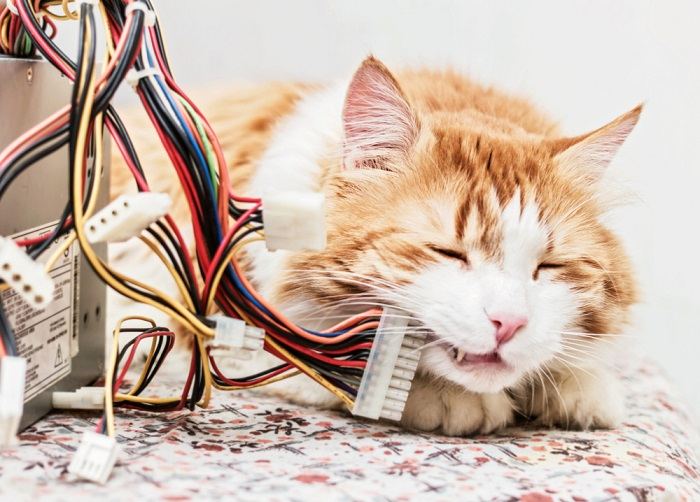
Cats who’ve swallowed something they shouldn’t will exhibit several symptoms.
Your cat may show a wide variety of signs following the ingestion of a foreign object. In some cases, the object may pass without you even realizing that your kitty is sick.
A foreign body in your cat’s stomach (gastric foreign body) can irritate the lining of your cat’s stomach, causing recurrent vomiting. Your cat may also have a decreased appetite, increased salivation (due to nausea), and abdominal discomfort. Hair elastics are a common cause of gastric foreign bodies in cats. Cats swallow hair elastics and they accumulate in the stomach over time, eventually leading to chronic vomiting that requires treatment.
Also Read: Why Does My Cat Chew On Cardboard?
While a gastric foreign body is certainly nothing to be taken lightly, an intestinal obstruction is even more problematic. Toys and balls often act in this manner. A foreign body lodged in your cat’s intestines will prevent the movement of food and feces through the intestinal tract. Signs of gastrointestinal blockage include severe vomiting, anorexia, abdominal tenderness, and a lack of stool production. This is a medical emergency and requires immediate veterinary assistance.
Linear foreign bodies are the most severe form of foreign body. A long foreign body (such as a needle and thread) becomes lodged in the gastrointestinal tract. As the intestines attempt to move the thread along, it will saw through the intestines and cause serious damage.
Cats with a linear foreign body will have signs similar to cats with an obstruction, though they may decline quickly if their intestines rupture. You may also see the thread lodged at the base of the tongue. The prognosis for a cat with a linear foreign body is guarded, as these can be life-threatening conditions.
Diarrhea is not a common sign of a foreign body, but it can occur. Constipation is also possible, especially if the object becomes lodged in the rectum.
How Will My Veterinarian Diagnose a Foreign Body?
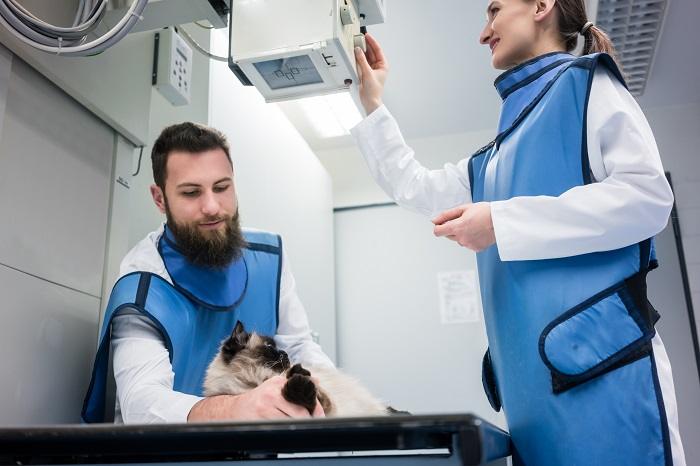
Your veterinarian can identify an ingested foreign object through X-rays and ultrasound, along with other diagnostic tools.
Gastrointestinal foreign bodies are usually diagnosed on x-rays. In some cases, the foreign material itself is visible on an x-ray. This allows your veterinarian to determine the exact location of the object. In other cases, making a diagnosis requires identifying abnormal gas patterns that suggest a foreign object or intestinal obstruction.
A barium study is a specialized type of x-ray that can be used to diagnose a foreign body. Your veterinarian will give your cat barium fluid by mouth, then take a series of x-rays. Barium is very visible on x-rays, and the way that it flows through the digestive tract can aid in the diagnosis of a foreign body.
Also Read: How Much Does A Cat X-Ray Cost?
Ultrasound may also be beneficial in some cats. While ultrasound is typically considered less effective than x-rays as a screening test, it can be very useful in certain situations.
Your veterinarian may also recommend other tests, such as a complete blood cell count (CBC), serum biochemistry profile, urine tests, and fecal parasite exams. These tests can rule out other conditions that may cause vomiting (such as pancreatitis and hormonal diseases) and help assess your cat’s overall health.
Also Read: Cat Bloodwork (Different Types of Tests, Health Conditions And Costs)
How Is a Foreign Object Ingestion Treated?
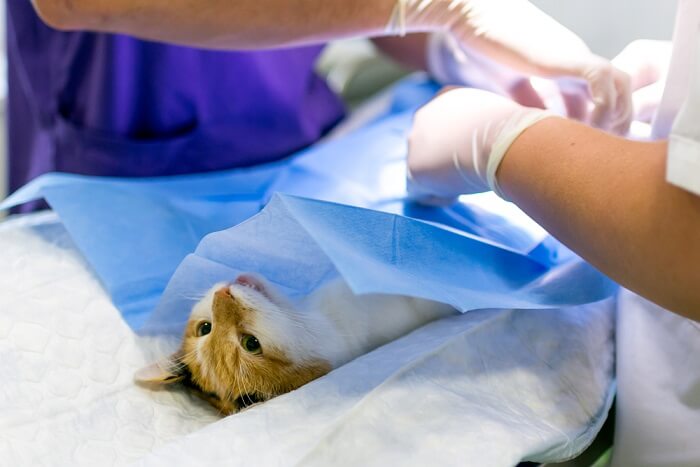
Small objects can pass through the body with fluid therapy and the right diet. In severe cases, surgery may be needed to extract the foreign object.
Treatment options will depend on the size and type of the foreign body, as well as your cat’s overall health status.
Small foreign objects may pass through the intestines with medical therapy. Your veterinarian may recommend fluid therapy (with subcutaneous or intravenous fluids) and a high-fiber prescription diet. Your cat should be monitored closely, because surgery may be needed if medical therapy is not effective. Follow-up x-rays are often recommended to ensure that the object has passed.
Also Read: Vet-Approved Cat Stool Chart: Decoding Your Cat’s Poop
If a foreign body cannot pass, your veterinarian may recommend surgical removal. Your veterinarian will make an incision in your cat’s abdomen, then closely examine your cat’s intestines. When your veterinarian finds the foreign body, they will remove it surgically.
Your veterinarian may also need to remove a portion of the intestine due to intestinal damage or a damaged blood supply. After surgery, your cat may remain hospitalized for several days to allow for close observation and a return to a normal diet.
Surgery can sometimes be avoided by using endoscopy to retrieve a foreign body. This involves inserting a long, flexible camera and tools into your cat’s gastrointestinal tract. Endoscopy can only access certain areas of your cat’s intestines. Additionally, endoscopy typically requires referral to a veterinary specialist, while surgery can be performed by your regular veterinarian. However, endoscopy is less invasive; your cat will still require anesthesia, but no incisions will be made. (If the veterinarian is unable to remove the object via endoscopy, your cat will require surgery.)
Also Read: How To Keep Your Cat From Jumping After Surgery
What Is the Cost of Foreign Body Treatment in a Cat?
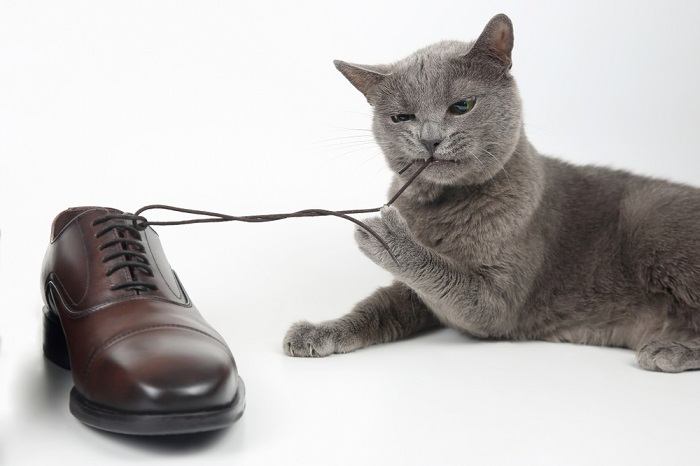
Treatment for a cat who’s ingested a foreign body depends on the size and type of object they swallowed.
The costs associated with the ingestion of a foreign object vary significantly, depending on your cat’s needs.
The initial diagnosis of a foreign body, including a physical exam and x-rays, typically costs $200-500.
Cost may vary, based on your location. After performing these diagnostics, your veterinarian should be able to provide you with a treatment plan, outlining the costs associated with treatment.
If your cat has a small foreign body that will pass with hydration and a high-fiber diet, treatment costs may range from $50 – 350 (depending on whether your cat requires hospitalization or outpatient care.)
A foreign body obstruction requiring endoscopy or surgery, however, will be much more expensive to treat. Depending on the damage that has been caused by the foreign body and how long your cat must remain hospitalized post-operatively to regain normal digestion, you may spend $1,500 to $5,000 for surgery. Endoscopy typically costs a bit less, ranging from $1,000 to $2,000.
Also Read: How Much Does It Cost Spay or Neuter A Cat?
Frequently Asked Questions
What happens if a cat eats a foreign object?
The ingestion of a foreign object can have a number of different outcomes. If you’re very lucky, your cat may pass the foreign object in their stool. In many cases, however, the foreign object becomes trapped in your stomach or intestines. This may require emergency veterinary care and surgical removal of the object.
How long does it take for a foreign object to pass through a cat?
The time that it takes for an object to pass through your cat’s intestines will depend on your cat’s appetite, diet, and hydration status. In most cases, objects should pass within about 24 hours.
How can I help my cat pass a foreign object?
Depending on the object that your cat has ingested, your veterinarian may recommend feeding a high-fiber diet to help move the object through your cat’s intestines.
How do you know if your cat has a foreign body?
Signs of a foreign body in cats may include vomiting, lack of stool, lethargy, abdominal pain, and weakness. Your cat also may show behavioral changes, such as increased hiding, increased aggression, and avoiding human interaction.

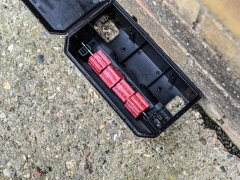

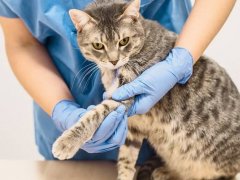


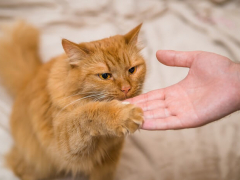
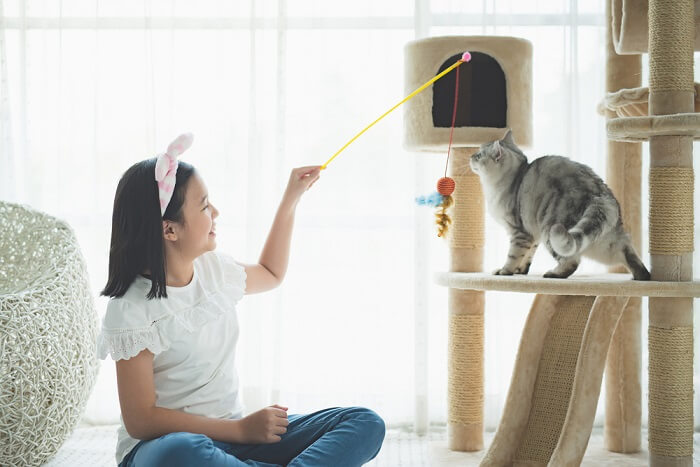
MY 7LB/ CAT SWALLOWED I ENTIRE STRAW HE PASSED IT WITH BLOOD ON EACH END.HES BETTER NOW SOME IS THIS POSSIBLE.HAIR 2 BLOOD ON EACH END. THANK YOU PATRICIA
It’s possible for a cat to pass a swallowed object like a straw, but blood on both ends suggests internal injury. It’s best to take your cat to the vet as soon as possible to check for any damage to the digestive tract.